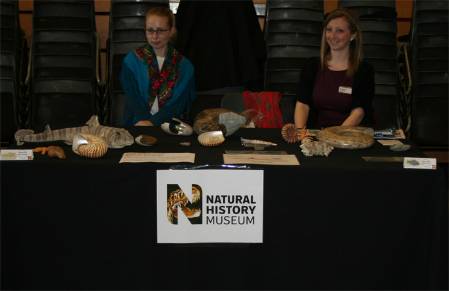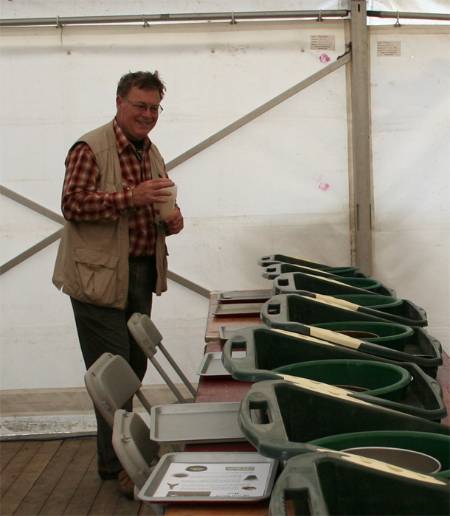Yesterday, we went to a secondary school in Dorchester. We set up our stand along with several others from the Museum, local fossil groups and the school's fossil club. At our stand we were giving students a brief explanation of taxonomy (how you classify all living things), specifically cephalopods.
We explained the difference between three major groups of cephalopod: ammonites, belemnites and nautiloids. The belemnite phragmacone we found yesterday proved to be very useful in explaining how a belemnite dealt with buoyancy control. The children enjoyed examining the recent nautilus we had with us to locate the hole for the siphuncle.
Zuzanna Wawrzyniak and Emma Bernard with our taxonomy stand (Zoe Hughes as photographer)
After the school event we returned to Lyme Regis to help set up the tent for the main event: the Fossil Festival. Our main earth science table is set up, with specimens for the public to handle starting today. We constructed the Baryonyx skull and helped David Ward set up his shark sieving activity.
Nearly finished setting up in the tent (with the Baryonyx spine and skull on the left)
David Ward setting up the shark sieving (to find fossil teeth, etc).
Today is the primary school day and we have been told approximately 600 children willl be visiting - wish us luck and we will report back soon!





